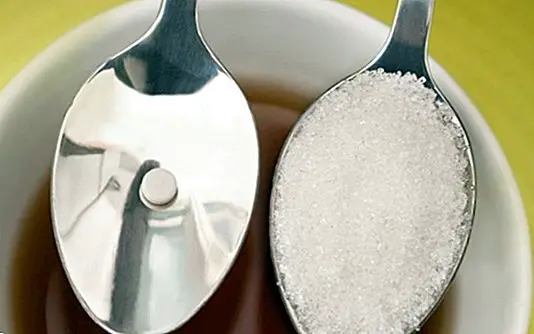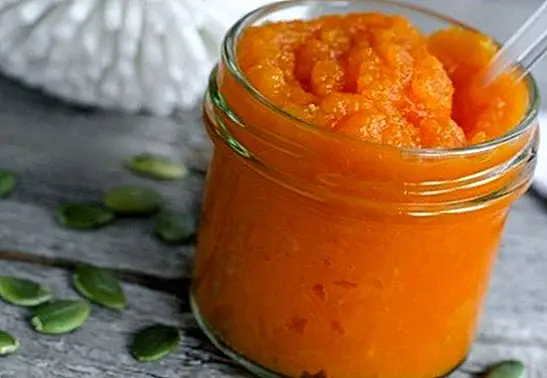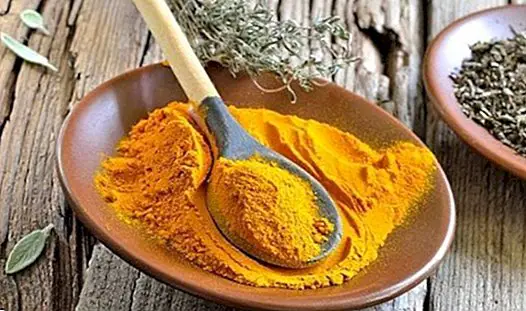What is the healthiest option to sweeten coffee, tea or infusion
The number of people who choose to consume is increasing teaor infusions, made with plants and herbs with medicinal qualities, used and consumed depending on the condition you have, or the objective we seek with respect to its different properties. For example, it is usual to use chamomile infusion as a digestive, while valerian infusion is notable for its interesting relaxing and anxiolytic qualities.
In almost any case, we are also a society in which coffee consumption is equally high. Therefore, it is estimated that in our country each person consumes around 4.5 kilos of coffee per year. Although we gain the Nordic countries (where it is consumed most), so that for example in Finland the incredible figure of 12 kilos of coffee per person per year is reached.

Regarding the consumption of tea and infusions, our country has increased its consumption in recent years, becoming interesting options for those who want to reduce coffee consumption, or for those who want to enjoy the different qualities they offer us once we know the virtues that gives us their regular consumption. It is also true that the increase in tea consumption is due to the introduction of Asian culture in our country.
But despite opting for healthy natural drinks, too we tend to sweeten our drinks excessively. That is to say, instead of enjoying the different flavor that each of these drinks brings, we mask their flavor using abundant amounts of sugar.
The result? Undoubtedly, the huge use of large amounts of sugar is behind the increase in overweight and obesity in our country (together, of course, with other related factors, such as sedentary lifestyle and diet follow-up. healthy).
Be that as it may, we are a tremendously sugary society, in which we have been sold that the problem of food was their fat and not the sugar they gave us (mostly converted to simple carbohydrates and empty calories). And let's give a single example: a single sugary drink gives us the sugar our body needs in a whole day.
In other words, we tend to exceed the consumption of White sugar, not only the one we use to sweeten our food or drinks, but the one that is already included in the food products we buy.
In fact, some time ago the World Health Organization said that taking a large amount of simple sugars a day not only increases the risk of obesity, but threatens the nutritional quality of our own diet, advising to restrict their consumption to no more of 10% of our caloric intake.
Therefore, if we want to enjoy a wonderful cup of coffee, tea or infusion, healthy and appropriate as long as there is no contraindication and we do not consume them in excessive amounts, what option can we choose to sweeten it? We only talk about the most recommended options.

The healthiest options to sweeten our drink
The most appropriate: take it alone, without sweetening
It's something that we already mentioned to you on a previous occasion, specifically in our article about Benefits of coffee alone: there is nothing better than Enjoy our favorite drink without adding sugar. It is the healthiest option, and obviously, the most advisable.
Fundamentally because in this way we do not provide empty calories to our body, which are part of those foods that do not provide any type of nutrient, and only contain calories. In addition, in most cases these calories are usually very high.
Moreover, did you know that the consumption of sugar in excess, even in quantities that we could apparently consider as small, dangerously increases the risk of suffering from type 2 diabetes, as well as other related diseases? This occurs especially with those known as free sugars added to foods or beverages, among which is precisely the table sugar (or sucrose).
The worst: white sugar and chemical sweeteners
If in spite of the indicated thing we want to continue sweetening our drink, especially if the taste of tea or coffee is something strong, the most appropriate is always avoid white sugar, a type of refined sweetener very common in most homes around the world, and that being such a caloric product -which only provides empty calories- can cause overweight and obesity, especially when its consumption is regular and / or excessive.
In addition, it tends to cause a deficiency of nutrients, since in addition to being completely empty (that is, it does not provide us with any nutrients), it causes deficiency of calcium and vitamin B1.

The same goes for the chemical sweeteners; that is, saccharin or aspartame, usually used by diabetics and also by the food industry. Although it is true that they are sweeteners with a zero caloric content and a glycemic index of 0, a scientific study published in the specialized journal 'Nature'A few years ago he associated his consumption with metabolic alterations.
According to this study, both saccharin and other artificial sweeteners are able to modify the intestinal flora and facilitate weight gain, which in turn translates into difficulties in the control of blood sugar levels by our body , increasing the risk of type 2 diabetes.
Stevia (or E-960)
In recent years, the use and consumption of stevia, a sweetener that comes from the extract of theStevia rebaudiana, with a caloric contribution practically insignificant and whose sweet taste is equivalent to 300 times that which contributes the common table sugar.
However, unlike what is said, stevia is not a natural sweetener. On the contrary, it is elaborated in the laboratory from the extraction - that is yes - of the steviol glycosides of said plant.
In addition, as indicated by Julio Basulto in an article published in 2015 in Eroski Consumer on whether stevia is healthy or not, "there are doubts about the safety of a high consumption of stevia", in addition to "no rigorous study endorses alleged properties therapeutic, preventive and much less curative stevia. "
In any case, it is a sweetening option that is obviously more appropriate than refined table sugar, so that its consumption is usual for people with diabetes, given that although it does not contain glucose, it does not raise the blood glycemic index. However, the recommendation is obvious: you must control your consumption, and never exceed.
But contrary to what is also said, as they comment from Dimetilsulfuro, stevia does not cure diabetes (it is simply suitable for diabetics), and does not cure cancer (only it has been proven that there is no cause and effect relationship between its consumption and the incidence of this disease).
Panela: a more appropriate option (but without excess)
At this point we find the panela, that in recent years has seen its consumption increase as its knowledge and popularity increased. It is a type of sweetener known as more "natural", because it consists of juice extracted from sugar cane.
It is very common in Colombia, where it comes from, although it is usually consumed in practically all of Latin America.

It has a sweetening effect greater than white sugar, and its particularity from a nutritional point of view is that It has its natural flavor and also all its nutrients, to be obtained naturally and not have been refined. Therefore, being more pure does not have chemical additives, and does contain nutrients found in the juice of sugar cane, as is the case of vitamins of group B, minerals (magnesium, calcium, phosphorus, iron, potassium, zinc , copper, fluorine, selenium and manganese) and amino acids.
Therefore, it is a more appropriate sweetening option, although it has a little less calories than white sugar. In fact, 100 grams of panela provide around 350 kcal, while refined sugar reaches 400 kcal. However, the big difference is that it is a sweetener that does not have empty calories. On the contrary, it provides interesting amounts of essential nutrients.
Honey: another natural option but that should be consumed in moderation
Honey is a natural product from bees, which also has an interesting sweetening power, also linked to the different nutrients it provides.
It is also another natural option more appropriate than the other sweeteners, because although its caloric contribution remains high is lower than that of any other sweetener. In addition, although its contribution in vitamins and minerals is small, it is considerably more in comparison with the amount of these substances that we find in the rest of sweeteners.
Stresses in this regard the cane honey, which mainly provides fructose, which is absorbed more slowly and is also suitable for people with diabetes. However, as long as it is consumed in small quantities, because as the American Diabetes Association warns, the abuse of fructose increases the levels of cholesterol and triglycerides. This article is published for informational purposes only. You can not and should not replace the consultation with a Nutritionist. We advise you to consult your trusted Nutritionist. ThemesSugar


